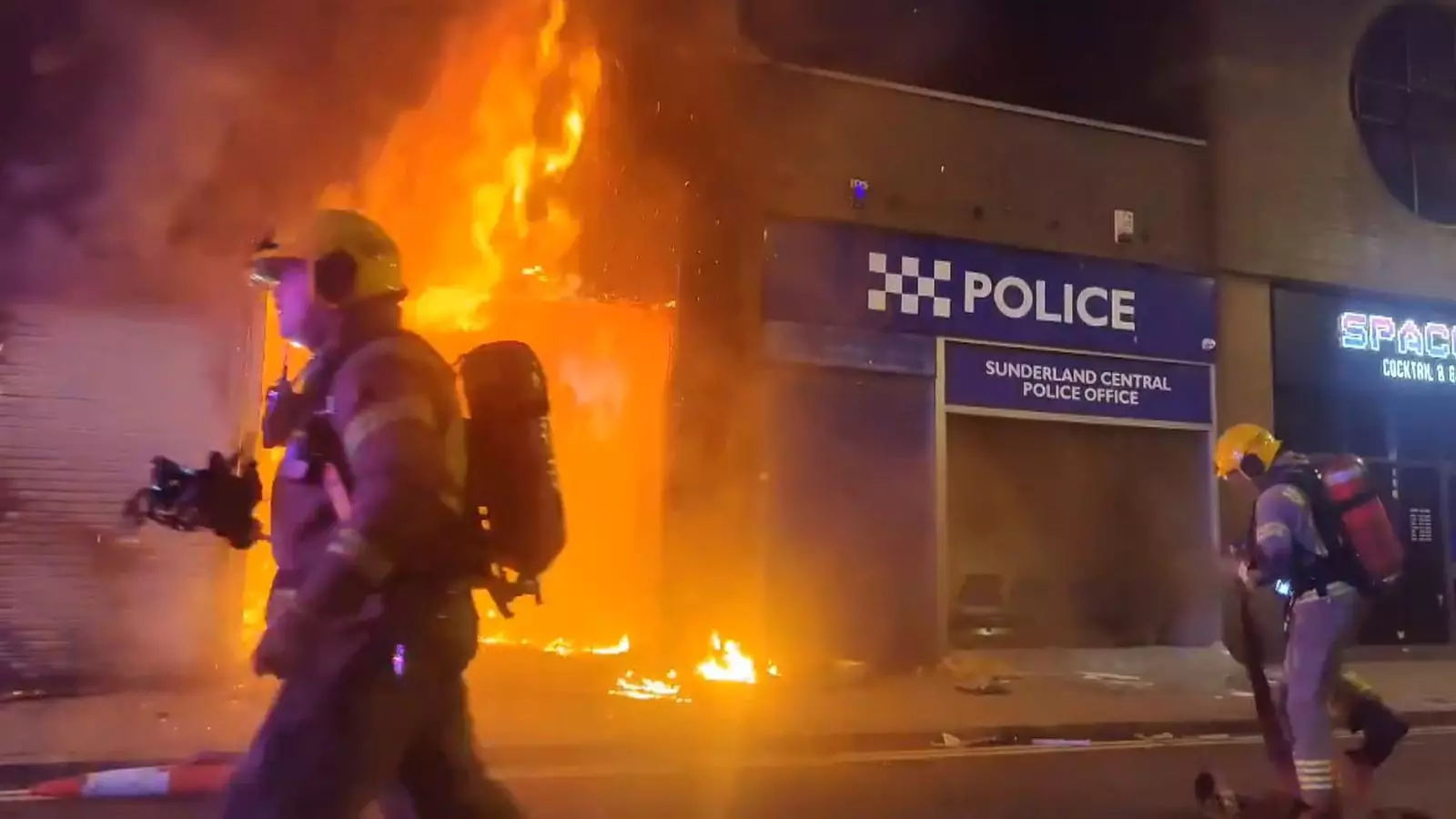This weekend is set to witness almost 30 protests across the UK, many of which are organized by far-right activists. The demonstrations come in the aftermath of the Southport stabbings and follow violent protests that erupted earlier in the week. More than 100 individuals were arrested outside Downing Street on Wednesday, and additional arrests were made in Sunderland on Friday night after a building close to a police station was set ablaze. Social media platforms have been flooded with posts promoting further events in various cities, with some specifically targeting mosques. Interestingly, there are also counterprotests being planned in response to the far-right demonstrations.
According to Sky News analysis, a total of 24 protests are scheduled to take place today, with 23 being organized by far-right activists and one represented as an “anti-racist” counterprotest. Moreover, an additional four far-right-organized protests and a “peaceful vigil” are slated for tomorrow. Advocacy group Hope Not Hate has expressed concerns about the burgeoning number of protests, estimating that there could be up to 35 in total. Many of these events, as noted by the group, operate under an anti-multiculturalism, anti-Muslim, and anti-government agenda without a central organizer.
In response to the escalating situation, British police chiefs are deploying officers in significant numbers over the weekend to prevent outbreaks of violence. The authorities have also put extra prosecutors on standby to swiftly charge individuals engaging in violent acts. Gavin Stephens, chair of the National Police Chiefs’ Council, emphasized the importance of having a surge capacity in intelligence, briefing, and resources within local communities. This proactive approach aims to ensure swift justice is served amid the unrest.
Prime Minister Sir Keir Starmer announced a new “national” response to the disorder on Thursday, aiming to foster better collaboration among police forces nationwide. This coordinated effort seeks to address the growing tensions and prevent further escalation of violence. Mosques across the UK are also on high alert, as highlighted by the Muslim Council of Britain, given the potential threat posed by the ongoing protests.
Unraveling the Sunderland Incident
In Sunderland, a confrontation unfolded between police and protesters outside a mosque on Friday night, resulting in objects being hurled at officers and a local station being set alight. Ten individuals have been arrested on various charges, including violent disorder and burglary. Additionally, four police officers sustained injuries and were taken to the hospital for treatment. The unrest has been linked to the English Defence League (EDL), founded by far-right activist Tommy Robinson, with protesters displaying England flags and chanting slogans in support of Robinson.
Lewis Atkinson, MP for Sunderland Central, highlighted a nexus between the disorder and the EDL, noting that the far-right group capitalized on social media suggestions following the Southport stabbings to mobilize protesters. He called for monitoring individuals associated with the EDL, emphasizing the need for police vigilance. Deputy Prime Minister Angela Rayner indicated that Home Secretary Yvette Cooper would assess the potential ban on the EDL, despite Robinson’s claims that the group no longer exists. Tory leadership hopeful Robert Jenrick condemned the far-right for orchestrating riots and stressed the need to consider proscribing the EDL if necessary.
The surge in far-right protests across the UK poses a significant challenge to law enforcement and societal harmony. The escalating tensions must be addressed through a combination of robust security measures, proactive intervention, and political resolve. It is imperative to confront the underlying ideologies driving these protests and take decisive action to safeguard communities against violence and extremism.

Leave a Reply